
Male fertility can be a sensitive issue, but here at Tea for Guys, we don't shy away from men's health. After all, around 9% of men of reproductive age in the U.S. have experienced some sort of fertility problem, and an even greater proportion have compromised reproductive health (such as low testosterone or sperm count), without actual infertility.
Medical fertility treatments can be expensive and invasive, and, it turns out, they're also often unnecessary. There are numerous lifestyle and dietary changes that can improve fertility naturally. Read on to discover everything you need to know about male fertility and how you can naturally support it, from home, without spending a fortune.
What Is Male Fertility?
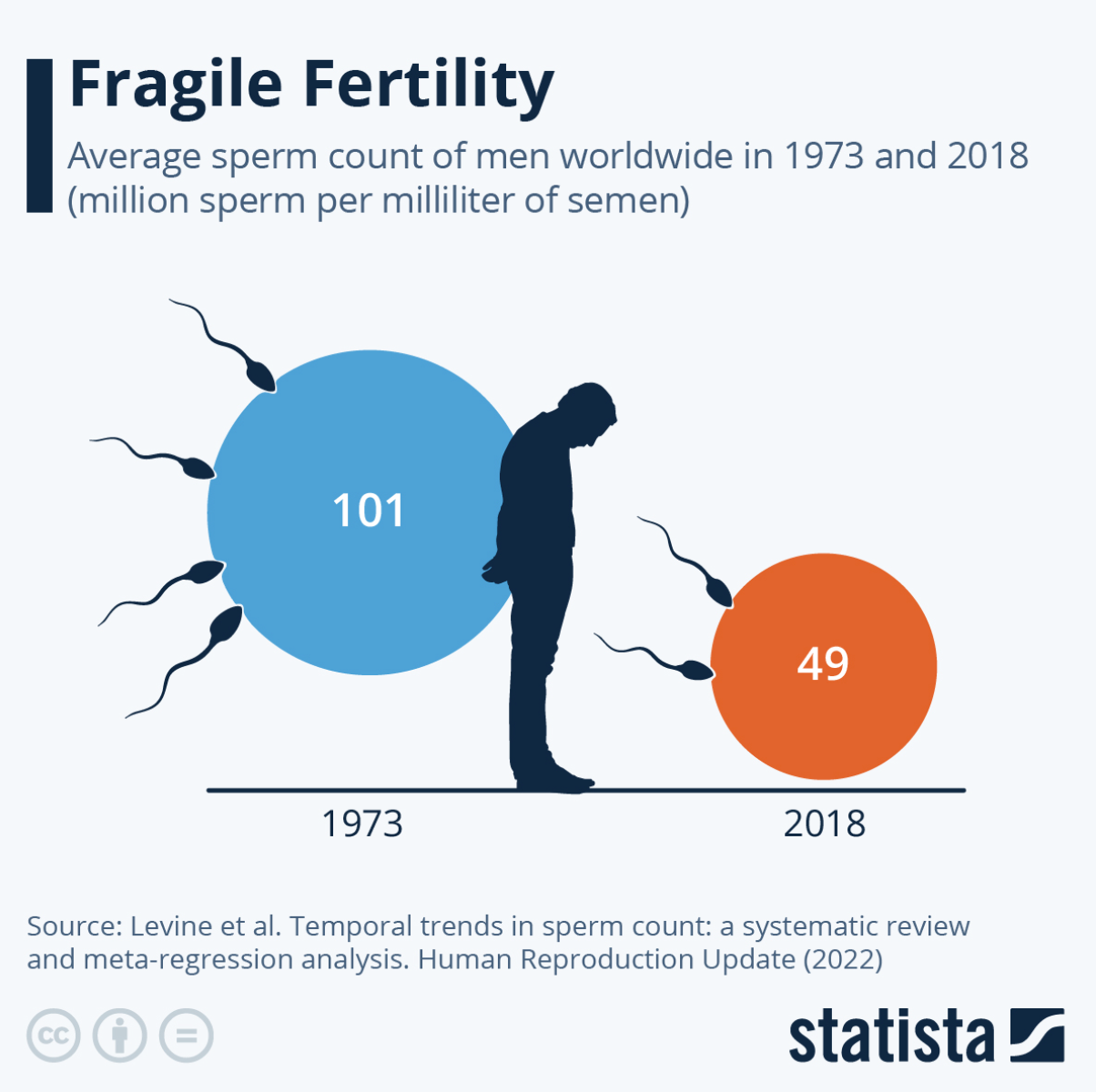
First things first: what do we mean by male fertility? This ubiquitous phrase covers multiple aspects of male reproductive health, including:
- Sperm health, comprising:
- Sperm count
- Sperm motility
- Sperm morphology
- Erectile health
- Testicular health
- Hormonal levels (including testosterone levels)
- Prostate health
So while the phrase "male fertility" is most often used to designate the ability to naturally propagate a child, it actually encompasses all of the above; issues in any of these areas can cause infertility.
A Quick Note On Language
For the purposes of this article, we use the terms 'men' and 'male' to indicate people who were anatomically male at birth and who are not now and have never undertaken feminizing hormone therapy.
Measuring Male Fertility
Male fertility is most commonly assessed via sperm health, and measured with three metrics:
Sperm Count
This is the number of sperm in an ejaculation; a healthy sperm count means: 15 million sperm per ml of ejaculate, at least 1.5ml in semen volume, and a total normal sperm count of at least 39 million per ejaculate.
Sperm Motility
This is how active the sperm are; 40% of sperm released need to be moving to reach the threshold considered healthy in terms of motility, and at least 32% need to be moving significantly.
Sperm Morphology
Healthy sperm have oval heads and long tails; it is possible for sperm to deviate from this shape, which can affect their usefulness. 4% or more of sperm need to have a normal form for quality to be considered normal, and 58% or more need to be alive.
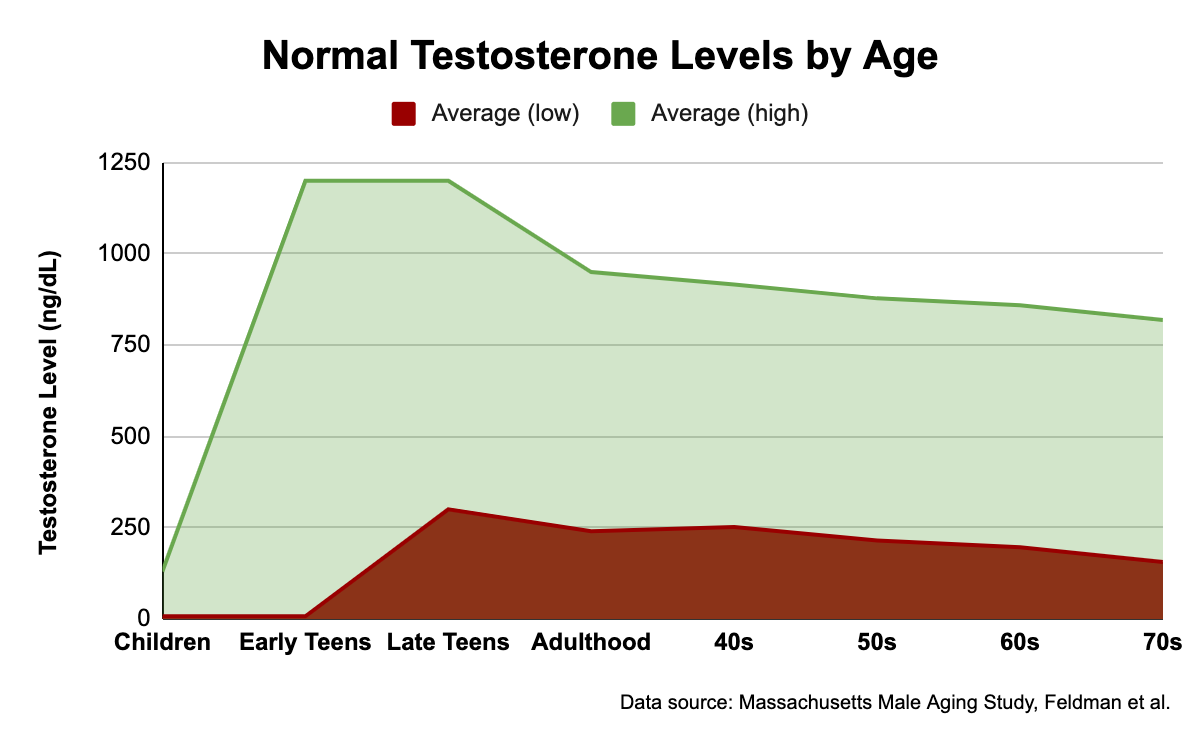
Other aspects of fertility, such as testosterone health, can also be measured. A normal testosterone level for a healthy adult male is anywhere from 300 ng/dL to 1000 ng/dL. But factors such as erectile health and prostate health are less easily classified; typically anatomical issues are either experienced directly, or assessed via sperm or testosterone measurements.
Causes of Male Fertility Issues
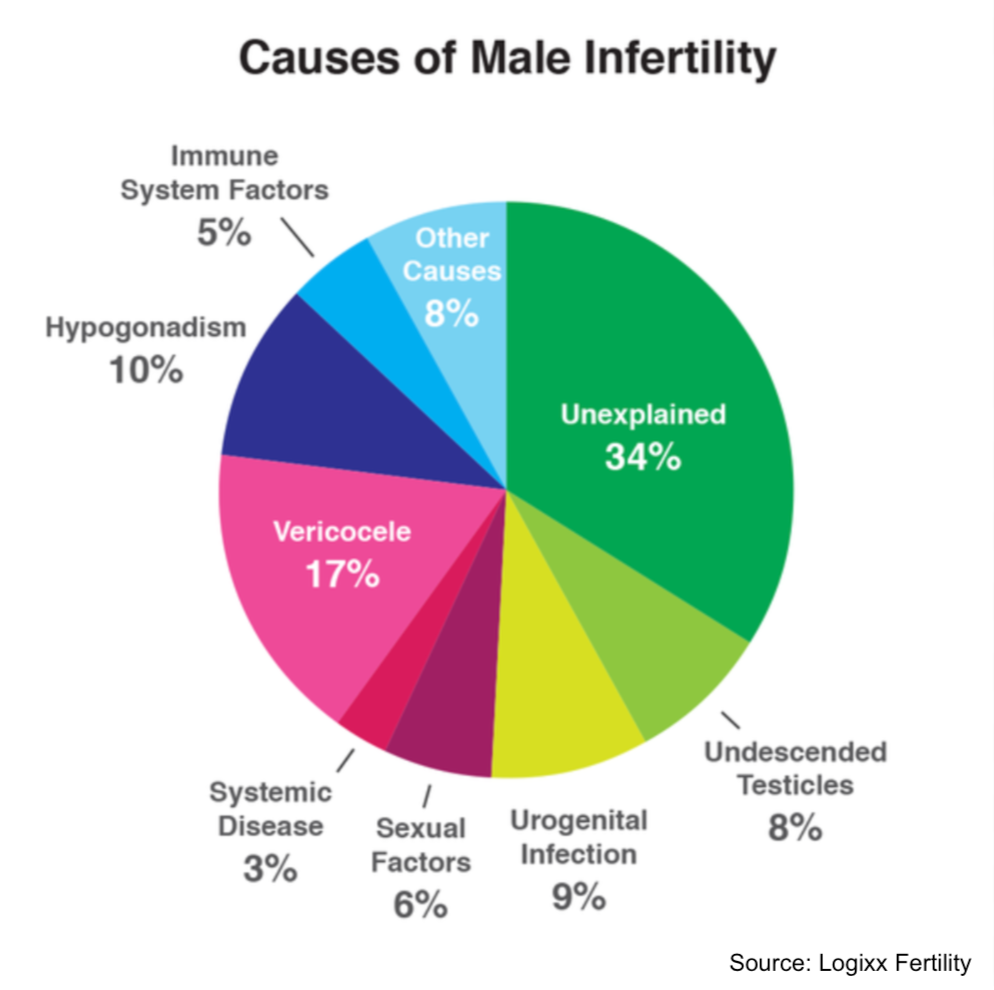
The potential causes of infertility are numerous, and they fall into two broad categories: a problem making good quality sperm, or a problem delivering sperm. This encompasses a number of ailments, including:
Varicocele
Varicocele is an enlarged or dilated vein (or veins) in or around a testicle; while this may sound fairly trivial, it's a condition that's present in 40% of men with fertility issues, and in around one in seven of all men. The enlarged vein leads to a low sperm count. The condition is easily diagnosed and treatable with minor surgery.
Infection
Infection of any part of the male reproductive system (including the prostate, the testicles, and the areas surrounding them) can cause issues with semen quality. This includes sexually transmitted infections such as gonorrhea. Most infections can be easily diagnosed via a blood test and are often treatable with simple antibiotics.
Hormonal Disorders
Sperm production is controlled by hormones, so imbalances in hormone levels can negatively affect sperm count and motility. These hormones are generated by the pituitary gland and the testicles, and circulated in the bloodstream, so are measurable via blood tests. Issues with the testicles, hypothalamus or pituitary gland can all cause infertility.
While a cocktail of hormones is required for proper sexual function, it's low testosterone that's most frequently the cause of low sperm count. Between 20% and 50% of men between the ages of forty and eighty in North America suffer from testosterone deficiency. To find out more about testosterone health, read How To Boost Testosterone Naturally.
Genetic Abnormalities
Genetic abnormalities can pose a significant roadblock in men's health, and take many forms, including chromosomal issues and sperm DNA fragmentation. Whether or not the issue is treatable depends on the underlying cause of the abnormality. For example, sperm DNA damage is often caused by oxidative stress.
Oxidative stress occurs when the amount of oxidants (or any reactive oxygen species molecule) in the semen outnumber the amount of antioxidants. Oxidants can damage the sperm cells and render them non-functional. The good news is that we can directly affect the amount of oxidants in our bodies via lifestyle, thus reducing the likelihood of oxidative stress.
Sperm Blockage
Sperm need to travel out of the testicles, and sometimes their ability to do so is hampered by blockages. These blockages can occur at any point between sperms' origin and destination, and can sometimes lead to no sperm present in the semen at all. Depending on where the blockage is, it may be possible to remove it and thereby to increase sperm count.
Medications and Medical Conditions
Certain medications are known to affect fertility; these include:
- Anti-androgens
- Anti-inflammatory medications
- Antipsychotics
- Bicalutamide
- Calcium channel blockers
- Certain antibiotics
- Chemotherapy
- Flutamide
- Methadone
- Opioids
- Radiation therapy
- Spironolactone
- Testosterone replacement therapy
- Tricyclic antidepressants
There are also some medical conditions that can, as a secondary effect, cause infertility. These include:
- Certain autoimmune diseases
- Cryptorchism
- Cystic fibrosis
- Defective testosterone synthesis or action
- Diabetes
- Hepatic disease
- Hypothalamic disease
- Klinefelter syndrome
- Myotonic dystrophy
- Orchitis
- Pituitary disease
- Renal failure
- Sickle cell disease
- Testicular trauma
While all of the above illnesses and issues can cause problems with either sperm production or sperm delivery, it's important to note that in many cases, the reasons behind low sperm count, poor semen quality or impaired sexual function are not known, even after testing and analysis by medical professionals. This is partly why understanding the various ways to boost male fertility is so salient.
Symptoms of Male Fertility Issues
The single most obvious measure in male reproductive health is the ability to get a partner pregnant. But not every man with treatable and/or symptomatic fertility issues is attempting to conceive, so this isn't a helpful test in many cases. And, often, the underlying issue does not have clear symptoms.
For example, you are unlikely to know you have a low sperm count without the knowledge that you and your partner are struggling to conceive. Similarly, you won't instinctively know your sperm have genetic abnormalities. In the absence of external physical symptoms, the only true way to test fertility health is via blood and sperm tests.
However, there are occasionally symptoms associated with the underlying cause of the fertility issue. For example, low testosterone has a variety of symptoms, including:
- Fatigue
- Increased body fat
- Hair loss
- Hot flashes
- Reduced stamina
- Reduced muscle mass
- Smaller testicles
- Erectile dysfunction
- Low sex drive
- Cognitive difficulties
- Depression
- Difficulty sleeping or insomnia
- Irritability
A good guideline for assessing potential sexual health issues is that, if you notice a problem, you should speak to your doctor, and get yourself checked out. In particular, do so if you experience any of the following:
-
Functional issues, including:
Erectile dysfunction - Low volume of ejaculate
- Reduced sexual desire
- Blood in your semen
- Pain
- Pain or swelling in the testicles
- Unusual discharge
- Urinary issues including difficulty or pain when urinating
Ways To Improve Male Fertility Naturally
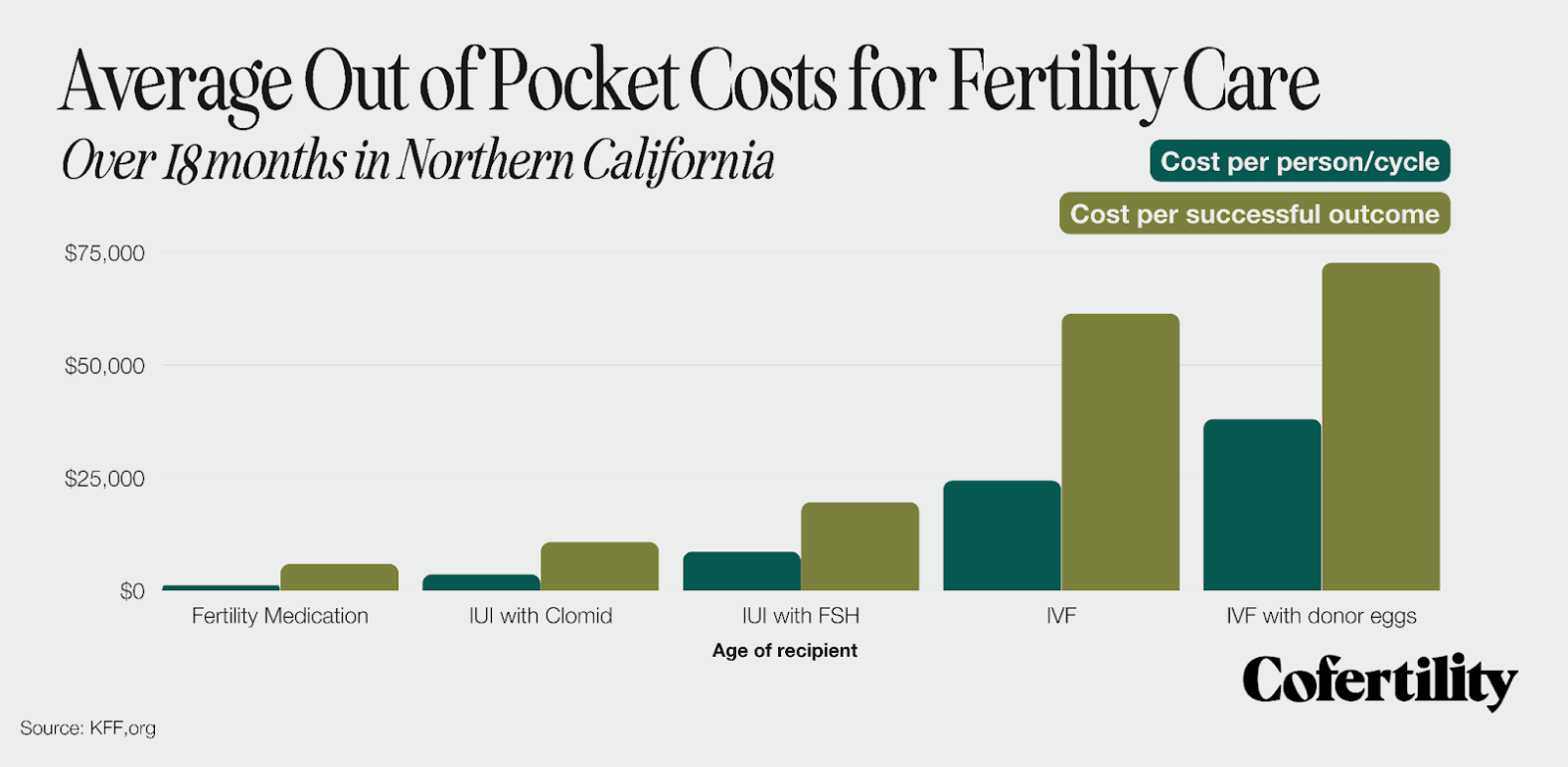
Here's the good news: there are plenty of ways to support men's health without resorting to harsh medical treatments or costly drugs. Many of these methods directly improve factors such as sperm count and motility, testosterone levels, heart health and prostate health. Let's take a look at them:
Seek: A Healthy Diet and Appropriate Supplements
Dietary changes are often cited as the single most effective way to improve fertility problems naturally. A balanced diet has been shown by research to improve sperm health. A healthy diet also makes it easier to maintain a healthy weight, which also improves sperm production. Scientific evidence specifically backs the following nutrients:
Antioxidants: research shows that antioxidants decrease the level of oxidants in the body, and so reduce the likelihood of oxidative stress (which can reduce sperm function)
Ashwagandha: multiple studies show ashwagandha increases testosterone levels, sperm volume, sperm concentration and sperm motility; to find out more about ashwagandha, read "Your Complete Guide To Ashwagandha: Its Benefits, Uses, Side Effects and More"
Calcium: studies suggest that calcium deficiency leads to a low sperm count
D-aspartic acid: this amino acid is necessary for proper testosterone levels and studies show that eating foods rich in D-aspartic acid can increase sperm count and motility
Fenugreek: fenugreek products have been shown to improve sperm count and semen quality
Folic acid: has been shown to increase sperm motility
Maca root: studies show that eating maca root regularly can improve sperm count and motility in healthy men
Omega-3 fatty acids: multiple studies show that men with diets high in omega-3 fatty acids have better sperm motility and sperm concentration
Vitamin B12: while necessary to support multiple bodily functions, research shows that B12 is crucial for the healthy development of sperm
Vitamin C: studies prove that ingesting more vitamin C will increase sperm count, motility and morphology
Vitamin D: research shows that semen quality increases with increased levels of vitamin D in the blood
Zinc: low levels of zinc are associated with low testosterone levels and poor sperm quality
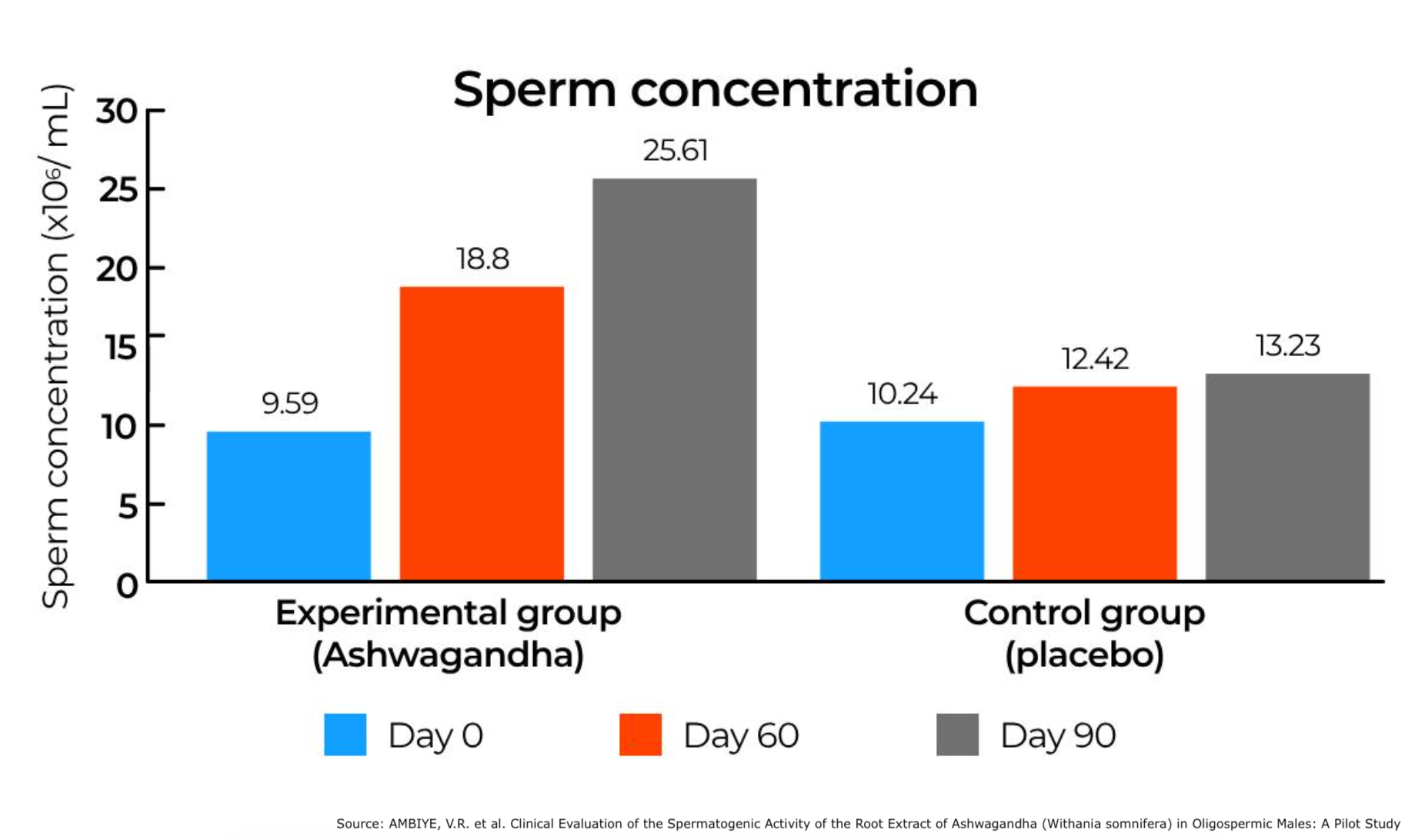
This list of nutrients may seem overwhelming, but there are some easy ways to get more of them in your diet. Prioritize these ingredients:
- Ashwagandha
- Chai
- Dark leafy vegetables
- Egg yolks
- Fish
- Fruit
- Garlic
- Ginger
- Low-fat cheese and yogurt
- Rooibos
- Tomatoes
- Turmeric
- Walnuts
- Whole grains
And while many of the nutrients listed above can be found in common foods, don't be afraid to utilize supplements if that is a more practical way to maintain beneficial levels of helpful nutrients. There are some specific nutrients that have been shown to work especially well for men's health in supplement form, and these include folic acid, vitamin C, omega-3, zinc, and antioxidant supplements.
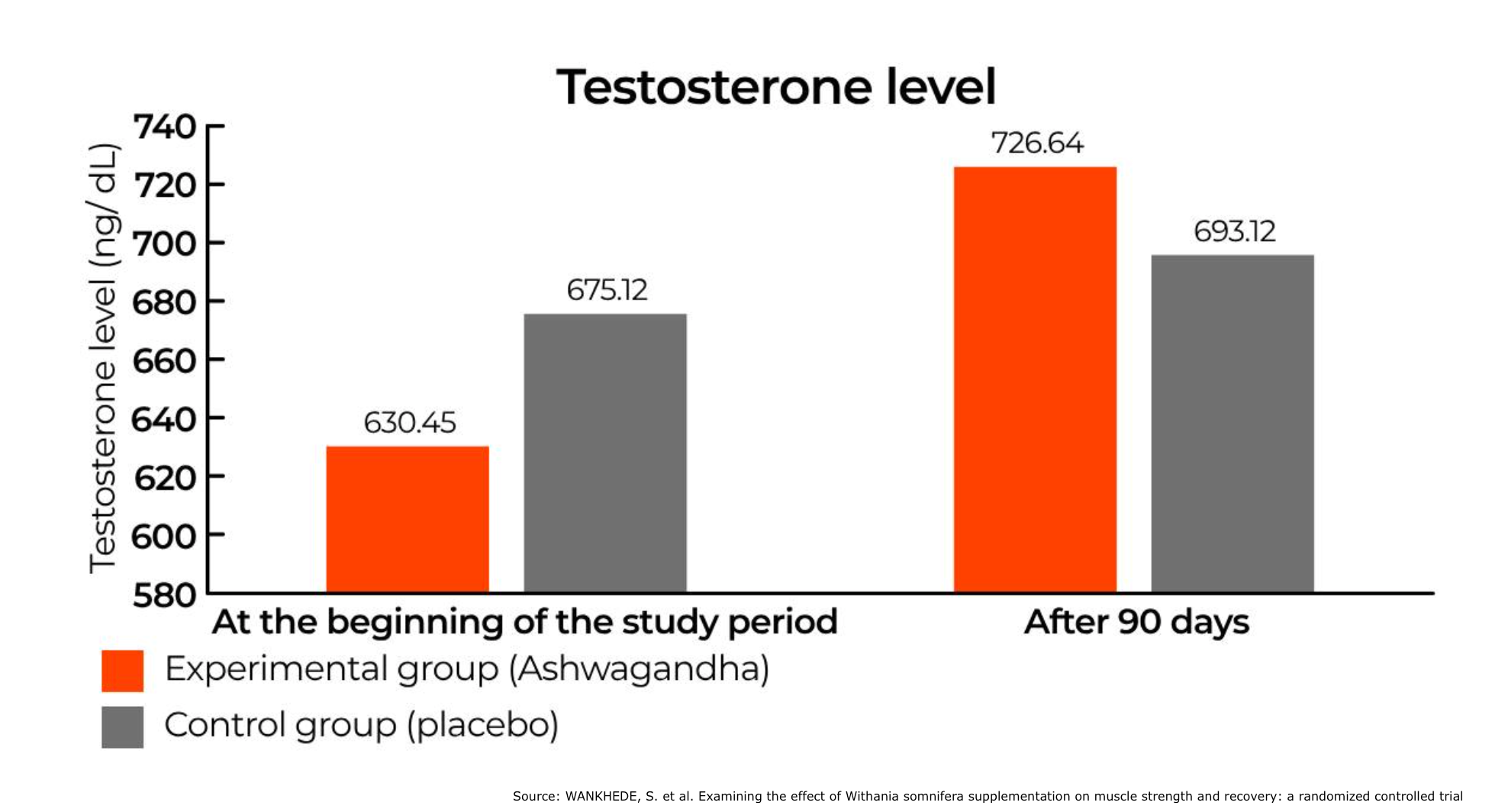
Top tip: Get more of the nutrients you need to support sperm production, semen quality and testosterone levels by finding foods and drinks that combine the power of multiple helpful ingredients. Tea for Guy's Vitality Blend, specially formulated to support male fertility and containing six fertility-boosting ingredients, is a great way to do just this.
It's not just about eating more of certain foods though; there are foods to avoid too:
Caffeine: high levels of caffeine are associated with low sperm count, so most experts recommend limiting yourself to one caffeinated drink per day
Processed and red meat: eating high levels of processed meat, especially red meat, has been shown to lead to low sperm counts
Soy and other estrogen-rich foods: studies have shown higher quantities of plant estrogen leads to lower sperm quality
Trans fatty acids: research shows that increased consumption of 'bad' fats leads to low sperm counts
A healthy diet is step one in a healthy lifestyle, and most health professionals recommend dietary changes as the single most effective way to increase sperm count naturally.
Seek: Exercise
Another factor in a healthy lifestyle is exercise. Moderate physical activity - constituting at least 30 minutes, several times a week - has been shown in some to improve semen quality, though the results are the most pronounced in those with high BMIs. Further research is needed to determine the optimal level of exercise to boost sperm count in otherwise healthy men. But given that exercise is recommended to improve overall health, making it part of your healthcare regimen is a good idea regardless.
Seek: Healthy Sleep
Reduced sleep can lead to a 15% drop in testosterone, which has knock-on effects on sperm production. It's not clear how much diet, exercise and sleep overlap as lifestyle factors affecting male factor infertility, as all influence each other as well as the majority of our biological functions. But safe to say, good sleep leads to better health outcomes overall, including healthy sperm, while poor sleep can have serious repercussions on all aspects of health.
Avoid: Smoking
Cigarettes lower sperm count, decrease sperm motility, and increase oxidative stress (which damages sperm cells). This has been proven over multiple studies, so if you are struggling with sub-optimal sperm parameters, then try to quit smoking.
Avoid: Alcohol
Excessive alcohol intake has been shown to reduce testosterone production and sperm production; evidence is mixed on moderate or light alcohol consumption, but the best medical advice currently is to only consume alcohol in moderation.
Avoid: Recreational Drugs
Recreational and performance drugs, including marijuana, cocaine and anabolic steroids, can reduce sperm production and testosterone levels, and may cause long-term damage to your overall health. Illicit drugs should be avoided at all costs if you want to protect sperm characteristics.
Avoid: Excessive Heat
Sperm production is at its best when the testicles are cooler than the rest of the body, so avoiding excessive heat is an important protective measure. The jury is still out on boxers versus briefs, but the data is clear regarding external heat sources: try to avoid hot tubs, laptops, and other high temperature environments or objects that may impair fertility.
Avoid: Environmental and Biological Hazards
There are two types of hazards that can be harmful to your overall health, and to sperm cells in particular. The first are environmental hazards; harsh chemicals such as pesticides and solvents, and toxins like lead can all cause fertility problems. There's also scientific evidence that shows high levels of air pollution can reduce sperm count. Sometimes these environmental factors can't be avoided, but any that can be, should be. If you come into contact with chemicals through work then take all appropriate steps to decrease exposure.
The second type of hazards are biological, the primary source of which is unprotected sex. Sexually transmitted infections, such as chlamydia and gonorrhea, can lead to decreased sperm production and even infertility in extreme cases. Unprotected intercourse should therefore be avoided. There are other biological toxins too; for example, many artificial lubricants have been shown to decrease sperm motility. Always read the label of any product you use, just to be safe.
Avoid: Stress
Lastly, research shows that stress affects fertility in two ways: firstly, it makes erectile dysfunction more likely, and secondly it reduces sperm quality. So to increase fertility, it helps to reduce stressors in whatever way possible. Thankfully, many of the other methods to improve fertility listed above - like regular exercise, good sleep and a balanced diet - also help reduce stress. Working on all these factors together will lead to significant improvement in fertility overall.
When To Seek Medical Help
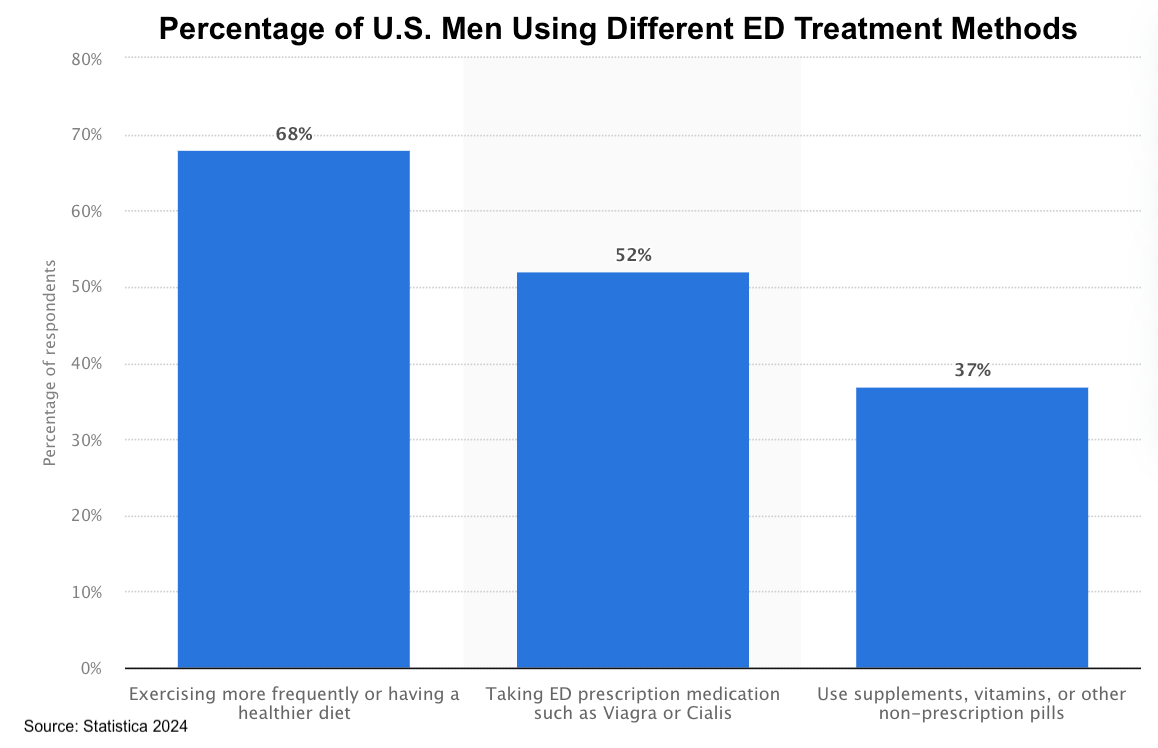
Not all infertile men can increase sperm count naturally; as mentioned above, there are sometimes underlying causes that need medical intervention. The most common guideline is that if you and your partner haven't gotten pregnant after a year of unprotected sex, then it might be worth speaking to a professional for evaluation. Of course, female infertility is just as likely to be at the root of the problem as male factors - fertile men simply cannot get infertile women pregnant - and if this is the case then semen analysis will indicate it. But if you and your partner are struggling to conceive, or if you experience any worrying symptoms related to your sexual health, then it's time to get checked out.
But you don't need to see a doctor to make the lifestyle changes listed above; these are all safe for everyone, will support your overall health, and will lead to improved fertility. They can also be delicious - like Tea for Guy's specially formulated Vitality Blend tea!
Medical References
A study into air pollution and total sperm counts - here
A study into antioxidants and semen quality - here
A meta-analysis of ashwagandha use in men's health - here
A study into caffeine and male infertility - here
A review of calcium and sperm health - here
A meta-analysis into cigarette smoking and semen quality - here
A review of D-aspartic acid and testosterone - here
A study into drug addiction and how it can affect male fertility - here
A study into estrogen and semen quality - here
A study into exercise and reproductive hormone levels - here
A study into fenugreek, testosterone and increased sperm count - here
A meta-analysis of folic acid supplementation in infertile men - here
A review of lubricants and male infertility - here
A study into maca root and semen parameters - here
Medications approved by the FDA that affect sperm count - here
A meta-analysis of omega-3 fatty acids and increasing sperm count - here
A review of processed and red meats in male infertility - here
A study into sleep and low testosterone - here
A study into stress and sexual function - here
A study into stress and testicular function - here
Testosterone deficiency guidelines by the American Urological Association - here
A study into trans fatty acids and total sperm count - here
A study into vitamin B12 and semen quality - here
A study into vitamin C and human semen quality - here
A study into vitamin D and semen quality - here
A study into zinc supplementation and men's health - here